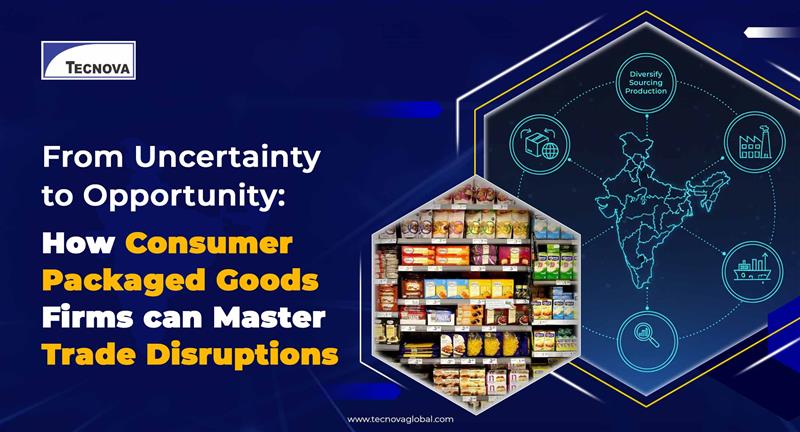India’s BIS Regulatory Landscape and Market Entry Opportunities
Are you planning to expand your business in India? Then understanding BIS (Bureau of Indian Standards) regulations is non-negotiable.
✓ 769+ product categories under 187 Quality Control Orders (QCOs)
✓ 10x penalties for non-compliance
✓ 95% standards aligned with global norms like ISO
With India tightening its product quality framework, BIS certification is now the gateway to market access and consumer trust.
The BIS Act, 2016 reshaped India’s compliance landscape — enabling both foreign manufacturers (via Authorised Indian Representatives) and domestic vendors to meet the same quality benchmarks.
Whether you’re setting up manufacturing or distributing in India, staying compliant is key to sustainable growth and long-term success.
Want to simplify your BIS compliance process?
Partner with Tecnova — your trusted consulting ally for India market entry and regulatory compliance.
India's BIS Regulatory Landscape and Market Entry Opportunities
Are you looking to expand your business in India?
Then, understanding the BIS regulations is crucial to staying on the right side of the law. With more than 769 product categories covered under 187 Quality Control Orders (QCOs) for compulsory certification, India is slowly raising the bar on product quality.
Businesses that fail to comply with updated BIS norms will be penalised 10 times more than the selling value of the goods. Therefore, to help you maintain a fail-safe regulatory compliance, this blog explores the BIS regulations in India and how you can navigate them hassle-freely.
What is BIS Regulation?
BIS regulations are a set of standards issued by the Bureau of Indian Standards to offer Indian consumers the best possible products. The aim of implementing these regulatory requirements is to ensure all products meet the safety and quality standards.
Whether you are a foreign manufacturer or a local vendor, understanding and maintaining BIS standards in India is a must to establish your business.
What did the BIS Act 2016 bring to the table?
The BIS Act, 2016, replaced the Bureau of Indian Standards Act, 1986. The Act introduced multiple certification schemes. It also allowed foreign manufacturers to apply for certification by assigning an Authorised Indian Representative (AIR).
BIS Act, 2016, brought a host of major provisions, some of which are:
● Compulsory Certification: The compulsory certification applies to specific product categories via QCOs.
● Strict Penalties: Authorities can abolish non-compliant goods and imprison the seller/manufacturer in case of extreme violations.
● Comprehensive Standardisation: The Act added more than 130 sectors under BIS regulations.
● Alignment with Global Standards: As per a recent article, 95% of the 2016 BIS standards are harmonised with international codes, like ISO.
Note: All kinds of manufacturers, be it foreign or local, must adhere to these regulations before selling their products in India.

Understanding the BIS Conformity Assessment Regulations 2018
Coming into force in June 2018, the BIS Conformity Assessment Regulations aim to align all products under specific Indian Standards (IS) before selling in the market. The regulations introduced multiple certification schemes, such as:
1. Scheme I
This product certification scheme is to grant a licence for the ISI mark application. This scheme includes more than 174 Quality Control Orders and over 688 products.
2. Scheme II
This is a Registration Scheme for products like electronics, IT goods, etc. There are nearly 6 QCOs and 73+ products under Scheme II.
3. Scheme III
Scheme III is a certification scheme designed exclusively for management systems as per Indian Standards. It involves the processes and requirements that a manufacturer must follow to acquire licences for products.
4. Scheme IV
Scheme IV is a conformity assessment scheme that helps to license goods and articles. It guarantees that products have been manufactured using BIS-marked processes.
5. Scheme V
Scheme V is a certification designed for a lot or batch of products. The applicable standards may vary depending on the type of goods.
6. Scheme VI
It is a certification for processes or services under BIS regulations. This certificate of conformity applies as per any BIS standard.
7. Scheme VII
This conformity assessment scheme certifies the approved type of goods and services under BIS regulations.
8. Scheme VIII
Introduced in the BIS Amendment Regulations, 2020, Scheme VIII is a certification for processes as per different standards.
9. Scheme IX
Scheme IX came into action in the 6th Amendment under the Bureau of Indian Standards (Conformity Assessment), 2021. This comprehensive certification includes conformity of product, management, and processes.
Note: Each scheme includes different testing procedures, inspection requirements, and renewal criteria. Read the terms and conditions mindfully before applying for a certificate of conformity.

Major new BIS Regulations and Orders in 2025
In 2025, India is witnessing several BIS regulations in India with a wave of Quality Control Orders (QCOs). Take a look at the major ones:
1. Scheme X
Scheme X mandates certification through factory inspection and third-party lab testing. It is for heavy machinery, power tools, and capital equipment. The application of Scheme X addresses the concern related to the safety and interoperability of imported machinery.
2. New Quality Control Orders (QCOs)
In 2025, various QCOs are issued by the Government. It bought a wide range of items under mandatory compliance, including:
a. Fasteners, hinges, screws
b. Construction materials
c. Electronic appliances
d. Medical equipment.
These new orders aim to plug quality gaps and reduce the influx of sub-standard imports into India.
Top 4 Reasons driving changes in BIS Regulations
1. Industrial Impact
Industries across India are now under strict observation. Manufacturers must adhere to BIS norms to ensure all products sold in India meet the safety and quality standards.
2. MSME Concerns
Small Indian manufacturers often face challenges due to low-quality imports. These imports enter India and unfairly compete with local manufacturers. This is why the Government of India has updated the BIS regulations to create a fair level-playing field.
The government is also offering various relaxations in the grant of licence and renewal fee to MSMEs, such as:
a. 20% concession in changes for small and medium enterprises
b. 80% concession in fees for micro-scale companies
c. 50% reduction of fees for small-scale organisations
d. An additional 10% fee concession to women-driven manufacturers.
3. E-commerce Enforcement
With an aim to promote ‘Make in India’, the Government is encouraging online marketplaces to verify BIS compliance before listing products. Non-compliant sellers will be blacklisted and penalised. This helps to improve the product quality of local digital-first brands.
4. Support for Startups
To support innovation, the Bureau of Indian Standards is offering a straightforward application process and a 50% fee exemption to startups until May 31, 2026.
4 Challenges Foreign Companies encounter in filing BIS Certification
1. Complex Regulations
Each product category has specific standards. Missing even one detail can lead to rejection.
2. Lengthy Paperwork
To apply for certification, one has to submit several documents. From test reports to product and factory information, the documentation can take hours.
3. Delayed Process
BIS labs often have long waiting lines. Factory audits take months to schedule. These delays push out certification timelines.
4. Certification Renewal
BIS certification is not permanent. It needs timely renewal and surveillance audits. Missing deadlines can suspend or cancel your certificate.
How to Navigate New BIS Regulations in 2025?
Here is how you can prepare to apply for a BIS licence:
● Check the listings under QCOs or Scheme X by visiting the BIS official website to find your product category.
● Each product must comply with a specific Indian Standard (IS code). Read the applicable standard thoroughly.
● The process, from factory audit to lab testing, takes time. Thus, start the process early to avoid market entry delays.

How Tecnova can help you Navigate BIS New Guidelines?
At Tecnova, we support global businesses to enter the Indian market. Our BIS compliance services include:
● Product classification and applicability analysis
● Complete certification support
● Monitoring documentation and submission
With over 40+ years of experience, Tecnova ensures that your products enter this competitive market with foolproof adherence to BIS regulations. Read More





.png)







%20(1).png)
.jpg)



.png)





.jpeg)

















.png)

.png)









.jpg)




.jpg)





















































